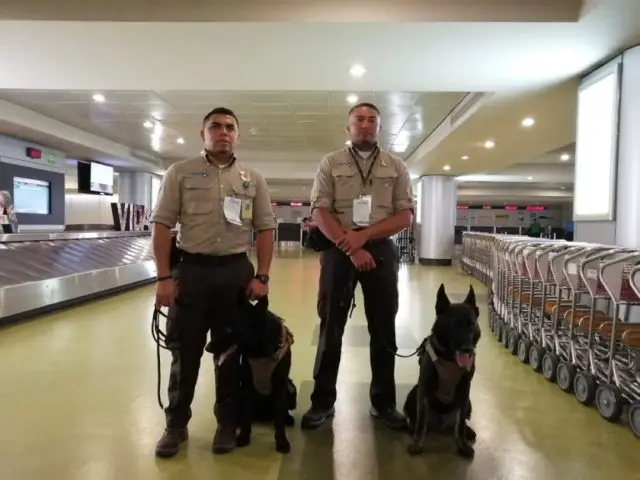A pair of canine units will track baggage in search of contaminated fruits and vegetables in order to reduce the risk of the introduction of pests into the country by travelers from Juan Santamaría International Airport.
The phytosanitary service officials were trained in Mexico and will return with 2 trained dogs that will begin inspection work this month (Dec. 2019), according to the Ministry of Agriculture and Livestock (MAG) in a statement. There, they developed canine management skills and techniques to detect agricultural products and add new aromas to olfactory memory.
Dogs will not deal with criminal cases but will focus on preventing the entry of pests such as Fusarium Raza 4 Tropical fungus, which constitutes a threat to banana production.

“From the moment I was selected for this project, a sense of belonging, commitment, and responsibility of greater magnitude fell upon me. The commitment is to be the first barrier to control the entry of pests and phytosanitary diseases into the country, and the responsibility to do an excellent job for the Costa Rican farmers”, said Debora Palacios, one of the State Phytosanitary Service (SFE) officials.
The entry of fruits, vegetables, seeds, leaves, and other plant products and by-products represents a risk for agricultural production, so they are seized and incinerated to prevent the exposure of a quarantine pest not present in the national territory. More than 10,000 kilograms of plant-products are seized on average per year at Juan Santamaría Airport.
The canine units will carry out a non-intrusive inspection of luggage to detect products of agricultural origin not declared by the passenger, as a complementary mechanism to the X-ray inspection.
“Pests do not know borders. It is necessary that people be aware of not bringing plant-products because there can be hidden harmful pests for the country”, said Jose Mynor Monge, head of the phytosanitary control station at the international airport.
